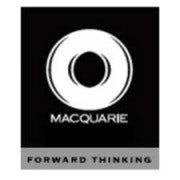Value Investor: The good news about writedowns
While the market responds negatively to poor earnings results, it does not mean profitability and intrinsic value will also fall. In fact, asset writedowns can improve profitability metrics, such as return-on-equity.
Generally, asset writedowns are negative in that they indicate lower sustainable earnings. However, in certain cases, they can remove underperforming assets from the balance sheet and actually increase return-on-equity and intrinsic value.
A good example is Coca-Cola Amatil (ASX: CCL), which reported an 83 per cent drop in statutory profit to $79.9 million in fiscal 2013. This was affected by its struggling SPC Ardmona business, with a writedown of $317 million in goodwill and brand names, along with $87 million in inventory and property, plant and equipment.
SPC Ardmona has lost market share to imported packaged fruit due to the high Australian dollar, which makes imports cheaper, resulting in declining sales, volumes and earnings.
CCL faced difficult trading conditions in Australian groceries, with earnings down 9.3 per cent. Retailers are holding reduced inventories and competitors have been aggressive in their pricing (see this earlier article discussing the pricing disparity between CCL and Pepsi).
The large writedown removed goodwill and brand names that were not contributing to earnings and also reduced shareholders’ equity, which fell to $1.75 billion, from $2.06 billion on 31 December 2012.
Return-on-equity is calculated as earnings divided by shareholders’ equity. In this case, equity fell while forward earnings had little or no change. As the numerator was constant and the denominator fell, return-on-equity actually increased!
This improvement to profitability might appear artificial, but it occurs because the balance sheet incorrectly attributed value to these assets. After the writedown, the increased return-on-equity better reflects sustainable profitability.
In our profitability forecasts, we have increased our adopted return-on-equity from 32 per cent to 37 per cent, which is marginally above consensus at 36 per cent. We maintained our required return at 12 per cent.

Figure 1. CCL Price Value Chart
Source: StocksInValue
It is interesting to see that our response to the earnings announcement was different to consensus (the black line, circled in red above). For the past couple of years, we have been conservative in our valuation of CCL, below market prices and consensus. After the recent result, our valuation has increased, driven by an increased return-on-equity. In contrast, consensus has had to play catch up by downgrading their future earnings estimates.
Despite the large statutory loss, our fiscal 2014 valuation for CCL has increased to $9.47. CCL is trading above valuation and is not currently worthy of investment consideration.
Similarly, Pacific Brands (ASX: PBG) reported a statutory net profit after tax loss of $219 million in first half fiscal 2014, affected by a large pre-tax writedown of $276 million, mainly concerning goodwill and brand names. The majority of the writedown was attributed to the workwear division, where revenue was flat but operating earnings were 40 per cent lower. Workwear has experienced reduced demand due to the downturn in the mining sector.
The writedown reduced total equity, but unlike CCL, forward profit estimates have been revised slightly downwards.
Once again, considering the calculation of return-on-equity (earnings divided by total equity), the reduction in earnings was outweighed by the fall in equity. As the denominator fell more than the numerator, return-on-equity increases.
Our forecast return-on-equity has been revised upwards from 13 per cent to 17 per cent (orange below), which is slightly ahead of consensus at 14.9 per cent (in pink below).

Figure 2. PBG Future Intrinsic Value
Source: StocksInValue
The risk of further writedowns is low, as remaining intangibles are now related to the better-performing Bonds and Sheridan brands, which reported sales up around 10 per cent and an over 20 per cent increase in earnings. Should PBG avoid further write-offs and perform in line with expectations next year, we should see consensus estimates upgrade to around our current adopted return-on-equity of 17 per cent.
We have derived an FY14 valuation of $0.74, down slightly from $0.77 prior to the writedown.
Value investors should take away two points from these companies. Firstly, earnings are not necessarily a proxy for value and therefore, earnings downgrades do not necessarily reduce intrinsic value. Secondly, asset writedowns - where forward earnings are unchanged - can actually increase the profitability of the business and its intrinsic share value.
Brian Soh is an associate analyst at StocksInValue, a joint venture between Clime Asset Management, a value fund manager, and Eureka Report. StocksInValue provides valuations and quality ratings of 400 ASX-listed companies and equities research, insights and macro strategy. For an obligation free, FREE trial please visit StocksInValue.com.au or call 1300 136 225.
















